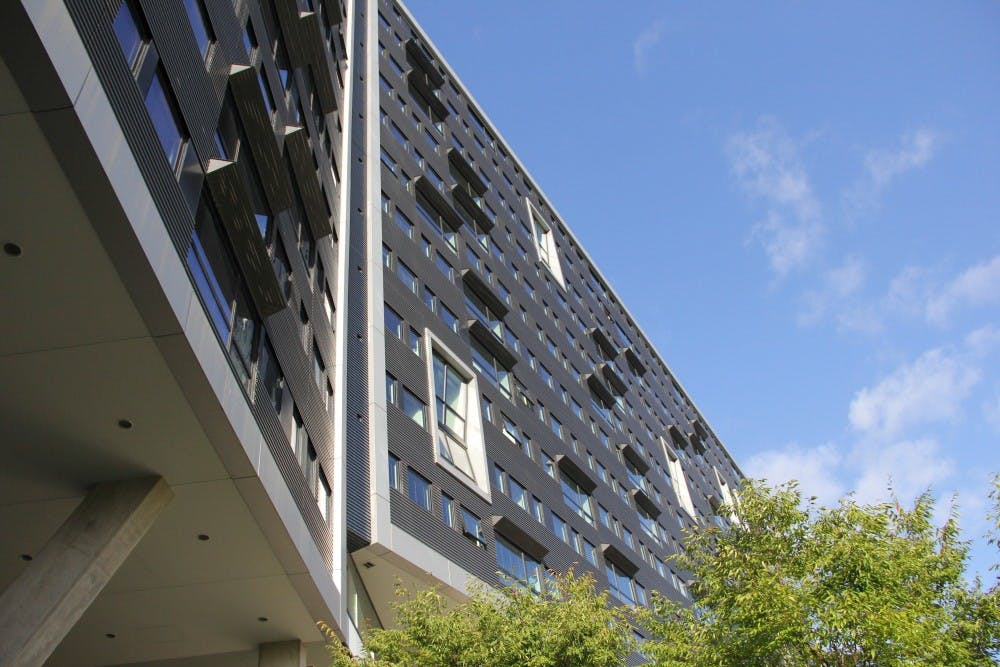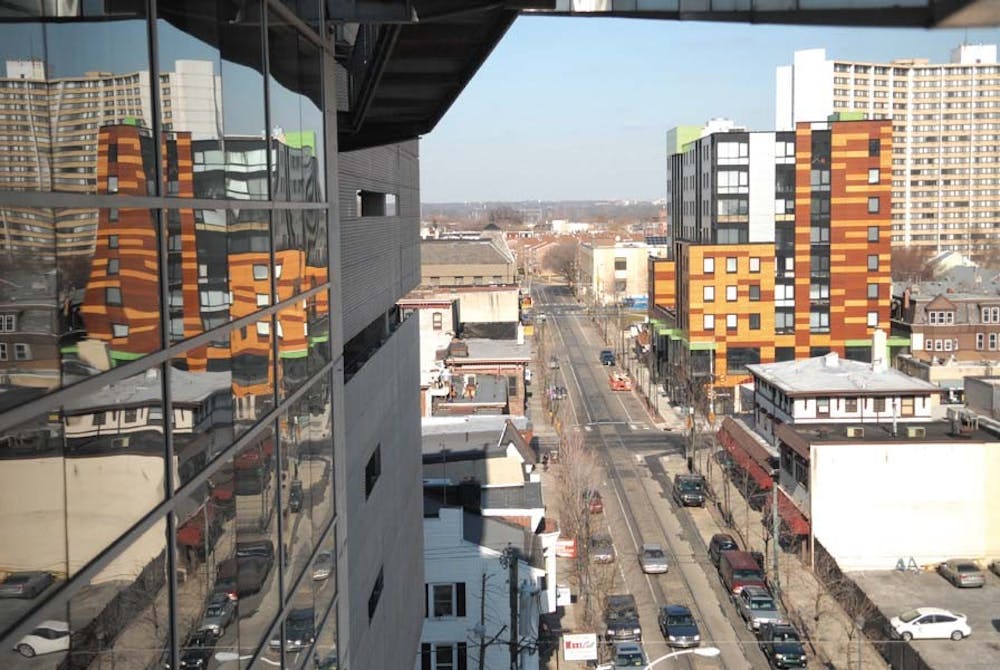
Critics argue that Penn's decision that sophomores will be required to live on-campus starting in 2021 would limit options and force first-generation, low-income students into more expensive on-campus living.
Credit: Borna SaeedniaIn September 2018, Penn announced sophomores would be required to live on campus starting in 2021. The move to expand Penn-run housing on campus was met with considerable student backlash, citing concerns that the decision would limit options and force first-generation, low-income students into more expensive on-campus living.
After a related policy change, Drexel University shifted to privatized housing to fulfill the increased demand, following universities nationwide that have increasingly gravitated toward the private sector to meet their housing needs. Penn housing administrators, however, say they were unlikely to mirror this move to privatize student living, citing support systems, faster maintenance service, and faculty relationships as benefits of on-campus housing.
One key element of Drexel's housing expansion over the past decade has been the prevalence of on-campus complexes built and operated by external corporations on university-leased land, Penn and Drexel housing administrators said.
While the majority of Penn’s housing is built and operated internally, many popular apartment complexes — such as Domus Apartments and The Radian — are operated by outside corporations on property that the University leases to them, said Ed Datz, Penn's executive director of Real Estate.
Douglas Berger, Penn's executive director for Business Services, said the value of internally-run university housing is also "education that happens outside of the classroom," such as the interactions with faculty residents, the support for undergraduates, the community programming, and the faster maintenance assistance.
"Those things aren't necessarily provided in private housing," Berger said.
Currently, Drexel sophomores have the option between on-campus residences, Greek life houses, and apartments managed by American Campus Communities, a private corporation operating nearly 100 housing complexes on university ground-leases across campus, from Princeton to UCLA.

The Radian, above, is one of the apartment complexes that is operated by outside corporations on property that the University leases to them.
Alan Greenberger, Philadelphia’s former deputy mayor for Economic Development, said Drexel and other universities’ turn toward private sector housing is partially a result of an increasingly competitive university selection process, where universities hope to draw students to fancier on-campus options.
“It’s a little bit like an amenity war that’s going on," said Greenberger, who now serves as Distinguished Visiting Fellow at Drexel’s Lindy Institute for Urban Innovation. "Private entities are in a position to provide these things without universities having to use their own endowments and bonding capacity."
Under private partnerships, companies build and operate on university property largely independently, including setting fees and collecting rent, said Harris Steinberg, Drexel's executive director of the Lindy Institute for Urban Innovation and former executive director at PennDesign.
Large private corporations would try to get tax reductions because of universities' status as nonprofits — despite the national for-profit nature of housing companies, according to a New York University study. These private companies can receive long-term leases of nearly 100 years, Steinberg said, and these contracts have the potential to grant companies significant discretion over how housing is operated.
"I think in most cases, there is an understanding of what the rent structures would be on a specific housing that's built. When you look at apartment rentals, it's a market-driven equation," said Datz.
Ariel Vazquez, a PennDesign professor, said universities might enter into a private partnership contract because of faster construction and easier attainment of permits.
Drexel city planners also said by giving students more on-campus options, surrounding residential communities can be protected from student disruption and gentrification; off-campus housing might cause higher rates of both.

The Hub, along with several other buildings, gives Penn students more and more variety in their off-campus housing choices.
Steinberg said Drexel's expansion was "an unintended consequence" of the university's success and threatened the surrounding community, leading to policy shifts to bring students closer to campus.
“Because students are often transient, there are often clashes with long-term residents over trash or noise," Steinberg said. "Before [private housing partnerships], the level of home-ownership was so low, and the level of student residency so high, that developers recognized that and were starting to tear down lovely old buildings with character and single-family housing, and started to put up what were in essence shoe boxes with beds."
A proponent of private partnerships, Greenberger cited cost-saving benefits for universities and increased efficiency gained by working with the private sector. He said, however, he recognizes the risks involved.
“When the private entity is the developer, the control that you have over it has to be modified depending on the kind of contract an institution creates,” Greenberger said.
“When the owners of The Radian built the project, the decision was primarily made on the fact that we weren’t trying to expand our internal housing, but rather an opportunity to add additional housing to the marketplace without it being part of the college houses,” Datz said.
The Daily Pennsylvanian is an independent, student-run newspaper. Please consider making a donation to support the coverage that shapes the University. Your generosity ensures a future of strong journalism at Penn.
Donate







